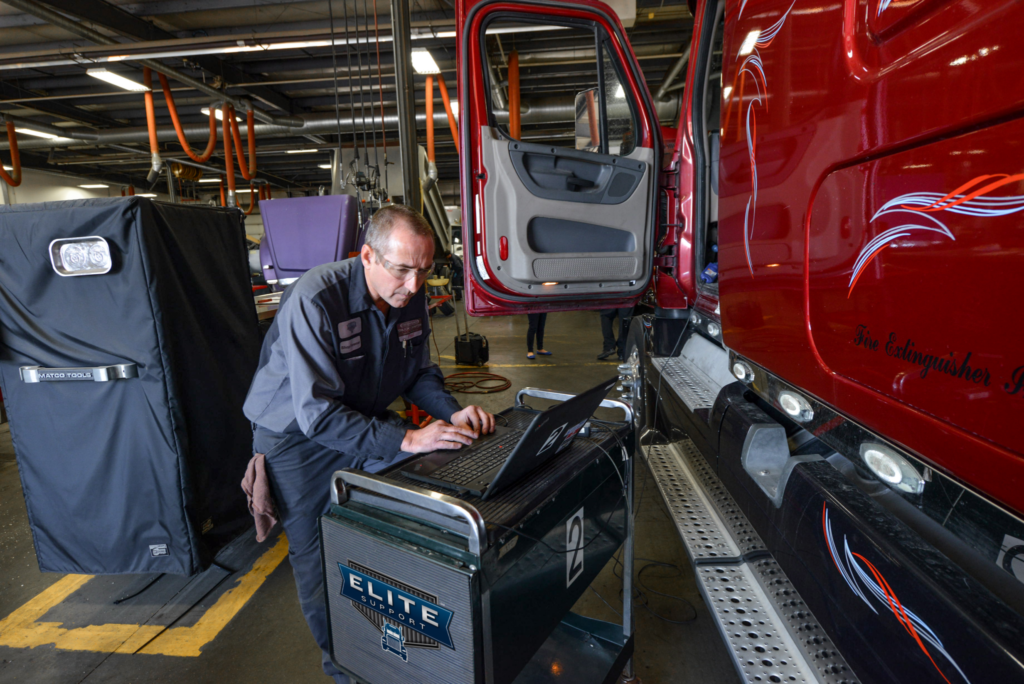Maybe we’re the problem when it comes to technician shortage
Another Technology & Maintenance Council (TMC) annual spring meeting has come and gone, and it wouldn’t be TMC without discussions about the desperate need to better attract and retain heavy truck and trailer technicians.
Never one to sugarcoat the issue, George Arrants, ASE Education Foundation vice-president, gave a candid overview of the situation while kicking off a discussion panel on recruiting and retaining technicians.

“Do we have a shortage of applicants? Or a shortage of qualified applicants?” he asked attendees. “Those are two different problems. For most of us, it’s qualified applicants. Which means we have people interested in our industry.”
The shop environment can be a difficult one in which to learn if today’s shop supervisors are still employing the same teaching methods that helped them learn their craft. When a young technician tackles their first job and does it differently than you would have, did they screw up? Or just do it differently? Arrants feels we’re too quick to judge and our expectations are too firmly entrenched in our own experiences and methodologies.
“We throw young people to the wolves and expect them to be successful,” he said. “We are eating our young.”
Research by ASE Education Foundation revealed that 18% of aspiring mechanics want to work on heavy trucks, but often training for that specific niche isn’t offered in their communities. It’s up to heavy-duty technician employers to ensure those learning opportunities exist at the local level, Arrants said. This means getting into the high schools and community colleges and conveying to instructors the skills gaps that exist with their graduates.
It could also mean opening up the shop to tours, investing in co-op students, and providing local schools with heavy equipment to use for teaching purposes.
“If you’re not involved in your local programs, you are part of the problem,” Arrants asserted. “If you have a turnover rate of over 20%, it’s time to look in the mirror – you’re part of the problem. If you think technicians are leaving for money, you have no idea what’s going on with this generation. When somebody leaves your organization, they’re telling you that the unknown is better than staying with you.”
Arrants said ASE research suggests that many technicians leave within the first two years of employment in the field. Where do they go? “Most don’t leave occupations that require them to work with their hands,” he said. “They just leave us.”
That’s a sobering thought. Are young technicians investing their time and money pursuing a career as a heavy truck or trailer mechanic, only to find out the job isn’t what they had in mind? And if so, is it the work, or the workplace that’s chasing them off?
Outreach with students and educators is key to finding this out preventing a widespread early exodus.
“The only way to do it is to get out of your office, go down the street and get involved with that program,” Arrants said. “Explain to that school why the candidates you’re getting are unqualified and help them make adjustments so they are [qualified].”
In terms of technician turnover, you’d be wrong to chalk it up to inevitable churn within the industry. Something that just can’t be fixed. The latest State of Heavy-Duty Repair report, compiled by TMC and Fullbay, found that technicians are actually quite loyal. Forty-nine per cent have been with their current employer for more than 80% of their career. But those 24 years of age or younger had spent an average two years with their current employer and three in the industry, suggesting many change shops within that initial few years in the business.
Perhaps this speaks to the lack of preparedness technicians have when launching their careers. If so, that only further validates Arrant’s argument that as an industry, employers need to do more to work with their local training institutions and ensure the next generation of technicians enter the field with eyes wide open and the tools and mentorship opportunities they need to succeed.
Have your say
This is a moderated forum. Comments will no longer be published unless they are accompanied by a first and last name and a verifiable email address. (Today's Trucking will not publish or share the email address.) Profane language and content deemed to be libelous, racist, or threatening in nature will not be published under any circumstances.
A nonprofit huron easyshare is helping certain trades people and disabled get tempary housing and jobs in huron county . From certain contries including Ukraine i have 1 peron maybe more that are living in a place being heated by 20 lb propne tabks and camp heaters no hydro or running water
When i was in highschool 45 yrs ago we had 7 trade shops including 2 for auto and eqyipment repair . They were funded by the local school board and 3 car dealerships and a main farm equipment dealer and 1 trucking co with a repair shop. All these places provided equipment and tools . Under the harris gov in ont these programs were gutted . We need a program to train i think.a good idea would to encourage young people and provide better training